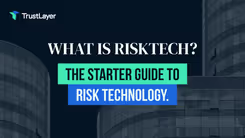Why Equipment Leasing Companies Need Automated Compliance Tools
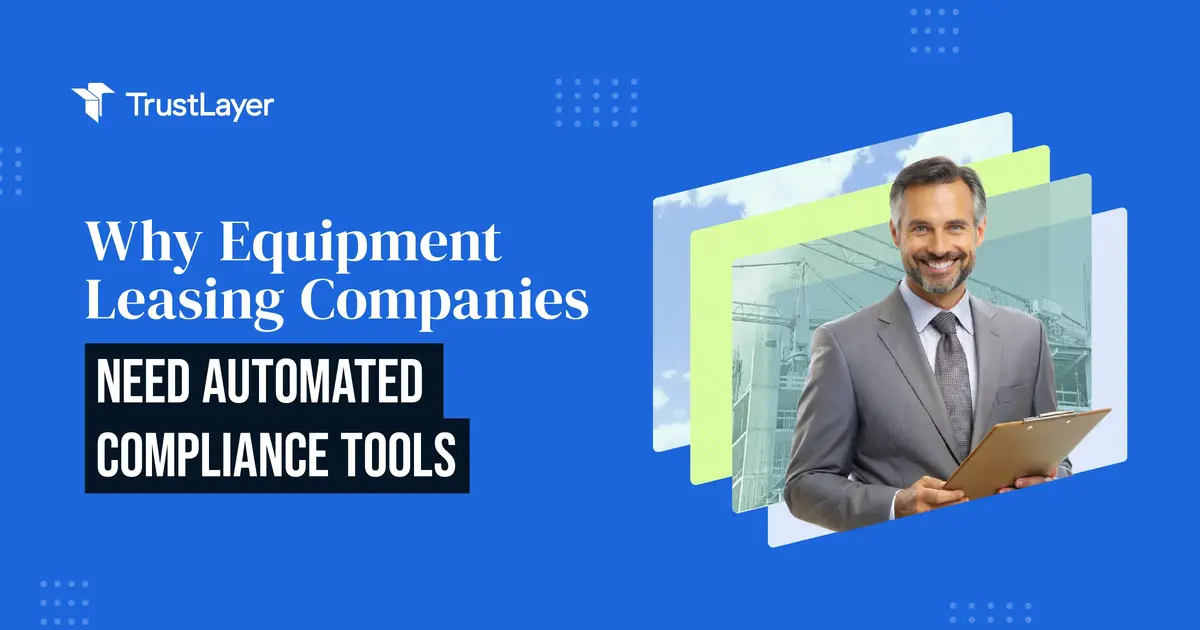
The Growing Demand for Equipment Leasing
The equipment leasing industry is experiencing unprecedented growth in today's fast-paced business environment. This surge is primarily driven by companies seeking flexible financing options to acquire necessary assets without the burdens of high upfront costs. In 2022, the U.S. equipment leasing market was valued at approximately $1 trillion, which is expected to grow as more businesses recognize the benefits of leasing over traditional purchasing. This trend is particularly evident in sectors such as construction, healthcare, and technology, where the rapid pace of innovation necessitates access to the latest equipment without the long-term commitment that comes with ownership.
As the demand for equipment leasing rises, so does the complexity of managing compliance requirements. Leasing companies must navigate a landscape filled with regulatory obligations, risk management practices, and industry standards. Addressing these challenges effectively is crucial to maintaining competitive advantage, ensuring operational efficiency, and fostering positive client relationships. Moreover, the rise of digital platforms and technology-driven solutions is reshaping leasing companies' operations, allowing for more streamlined processes and enhanced customer experiences. Companies are increasingly leveraging data analytics to assess credit risk and tailor lease agreements, which improves decision-making and aligns leasing terms more closely with each client's unique needs.
The evolving economic landscape, characterized by fluctuating interest rates and changing consumer behaviors, has also prompted businesses to reconsider their asset acquisition strategies. Equipment leasing provides a viable alternative, enabling companies to preserve capital and maintain liquidity while gaining access to essential machinery and technology. This mainly benefits startups and small to medium-sized enterprises (SMEs) that may lack the financial resources to invest heavily in equipment upfront. As a result, the equipment leasing market is becoming increasingly diverse, with a broader array of leasing options available, including operational leases, finance leases, and even lease-to-own arrangements, catering to the varied needs of businesses across different industries.
Compliance Challenges in Equipment Leasing
The compliance landscape for equipment leasing is intricate and often fraught with challenges. Leasing companies must contend with many state and federal regulations, making it essential to stay informed and agile. For instance, the multifaceted requirements surrounding Certificates of Insurance (COIs) highlight just one area where non-compliance can have serious repercussions.
Statistics show that approximately 30% of COIs submitted by lessees are deficient or inaccurate. This high rate of discrepancy poses a substantial risk not only to leasing companies but also to their clients. Failure to maintain accurate and validated COIs can result in increased liability, which may manifest as financial penalties or, even worse, significant damage to a company's reputation.
Additionally, manual compliance processes are often time-consuming and error-prone. Leasing companies that rely on outdated systems are more susceptible to human error, which can lead to missed deadlines and compliance lapses. The stakes continue to rise yearly, necessitating automated compliance solutions that enhance accuracy, speed, and efficiency.
Moreover, the evolving nature of regulations adds another layer of complexity to the compliance landscape. For instance, recent changes in data privacy laws and environmental regulations have forced leasing companies to reevaluate their practices and ensure that they are compliant and proactive in their risk management approach. Companies must invest in training their staff to understand these regulations thoroughly and in technology that can help track changes and ensure adherence to the latest standards.
Non-compliance repercussions extend beyond financial penalties; they can also impact customer relationships. Clients expect leasing companies to uphold the highest compliance standards, as any lapse can jeopardize their operations. As such, leasing companies are increasingly focusing on building robust compliance frameworks that meet regulatory requirements and foster trust and transparency with their clients. This shift towards a more client-centric compliance strategy is essential in a competitive market where reputation and reliability are key differentiators.
How COI Automation Reduces Liability for Leasing Companies
Implementing automated compliance tools, particularly those focused on managing Certificates of Insurance, offers a distinct competitive advantage. Automation streamlines collecting, tracking, and verifying COIs, drastically reducing the chances of errors associated with manual processes.
By automatically validating COIs against predefined criteria, equipment leasing companies can quickly identify and resolve any discrepancies proactively. This mitigates the risk of liability and instills a sense of trust and transparency with clients. Studies indicate that companies utilizing automated compliance tools see a 50% reduction in compliance-related incidents, allowing them to focus on core business activities rather than remedial tasks.
Furthermore, automated systems often provide real-time dashboards informing stakeholders about compliance status. This level of visibility allows leasing companies to respond swiftly and efficiently to potential risks, ultimately fostering stronger relationships with clients and leading to greater loyalty and satisfaction.
In addition to these benefits, automated compliance tools can significantly enhance the efficiency of the onboarding process for new clients. By streamlining the collection of necessary documentation and ensuring that all insurance requirements are met before equipment is leased, companies can reduce the time it takes to finalize agreements. This accelerates revenue generation and enhances the customer experience, as clients appreciate a smooth and hassle-free process. Moreover, with the ability to generate automated reminders for renewals and updates, leasing companies can maintain compliance without the constant manual oversight that can drain resources.
Moreover, integrating automated compliance tools with other business systems, such as CRM and ERP platforms, provides a holistic view of client interactions and risk management. This interconnectedness allows leasing companies to analyze trends and patterns in compliance data, enabling them to make informed decisions about risk exposure and insurance needs. As a result, companies can tailor their services to meet client demands better while ensuring they remain compliant with industry regulations, ultimately positioning themselves as leaders in the leasing market.
Key Features to Look for in an Automated Compliance Solution
When considering an automated compliance solution for equipment leasing, it is crucial to identify key features that align with your company's specific needs. Here are some vital aspects to consider:
- COI Management: An ideal solution should have robust capabilities to efficiently manage and validate Certificates of Insurance.
- Real-Time Monitoring: Look for tools that offer real-time alerts and monitoring features, keeping you updated on compliance statuses.
- Integration Capabilities: The solution should easily integrate with your existing systems to ensure seamless data sharing and management.
- User-Friendly Interface: A straightforward, intuitive interface will enhance user adoption and minimize training time.
- Reporting and Analytics: Effective reporting tools enable companies to analyze compliance data, facilitating strategic decision-making.
Considering these features will enhance efficiency and ensure compliance management becomes a strategic asset rather than a hindrance. With the right tools, equipment leasing companies can operate more confidently, knowing they minimize risk while maximizing opportunities. Furthermore, automating routine compliance tasks can free up valuable resources, allowing your team to focus on core business functions and customer relationships. This shift improves productivity and fosters a culture of compliance throughout the organization, where every employee understands the importance of adhering to regulations.
A comprehensive automated compliance solution should also provide customizable workflows that adapt to your business's unique processes. This flexibility allows for incorporating industry-specific regulations and standards, ensuring that your compliance efforts are practical and tailored to your operational realities. By leveraging advanced technologies such as artificial intelligence and machine learning, these solutions can also predict potential compliance issues before they arise, enabling proactive management and reducing the likelihood of costly penalties or reputational damage.
ROI of Automation: Financial and Operational Benefits
The return on investment (ROI) associated with automating compliance processes can be significant. Financially, companies can save substantial money that would otherwise be spent on compliance-related fines and penalties. Organizations not embracing automated compliance often face legal costs that can spiral into the hundreds of thousands of dollars annually. These costs can arise from fines and the resources needed to manage investigations and audits, which can divert attention from core business activities.
Operationally, automation enhances productivity by freeing employees from tedious manual tasks, allowing them to focus on more strategic initiatives. This transformation can improve team morale and retention as employees engage with more meaningful and less repetitive work. Furthermore, implementing automated systems often includes training and upskilling opportunities for staff, which can further enhance their capabilities and job satisfaction. As employees feel more empowered and valued, the workplace culture improves, fostering innovation and collaboration across departments.
Moreover, a solid automated compliance solution increases overall efficiency, leading to shorter turnaround times on leasing transactions. With less time wasted on compliance verification, leasing companies can expedite their processes, providing timely service to clients and ultimately driving profitability. According to recent research, companies that leverage automated compliance tools can see an increase in operational efficiency by as much as 40%. This efficiency not only translates to faster service but also enhances the accuracy of compliance reporting, reducing the risk of errors that could lead to costly repercussions.
As the equipment leasing market expands, the demand for effective compliance solutions grows concurrently. The complexity of regulatory requirements is ever-increasing, and automated compliance tools can help organizations stay ahead of these changes. By adopting automated compliance tools, leasing companies can address the industry's myriad challenges and position themselves for sustained success and growth. Additionally, these tools can provide valuable analytics and insights, enabling companies to make data-driven decisions that enhance their strategic planning and risk management processes.
As the equipment leasing market evolves, efficient and reliable compliance solutions become increasingly critical. TrustLayer is at the forefront of this transformation, offering the best-in-class certificate of insurance (COI) tracker designed for the modern risk manager. With TrustLayer, you can automate the tedious and error-prone process of verifying compliance documents, freeing your team to focus on strategic growth and customer satisfaction. Our platform is trusted by hundreds of thousands of companies for its ability to streamline vendor document management and provide proof of insurance quickly. Embrace the future of risk management and join the community redefining industry standards. Don't let outdated processes hold you back. Set up a time to talk with our team and discover how TrustLayer can revolutionize your compliance workflow today.



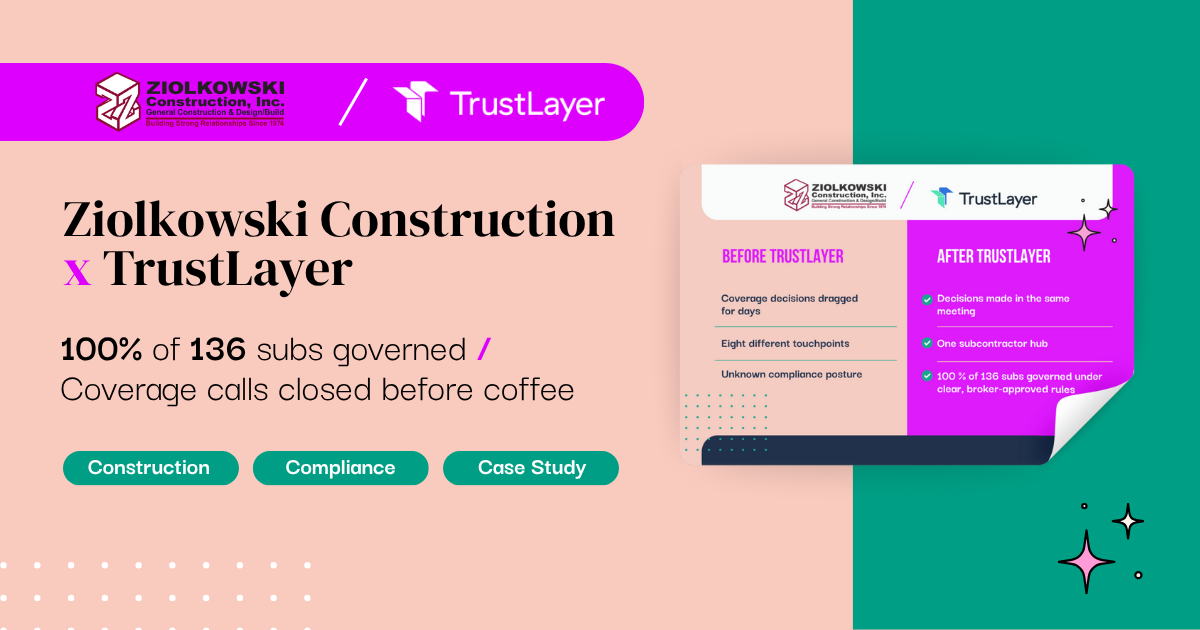
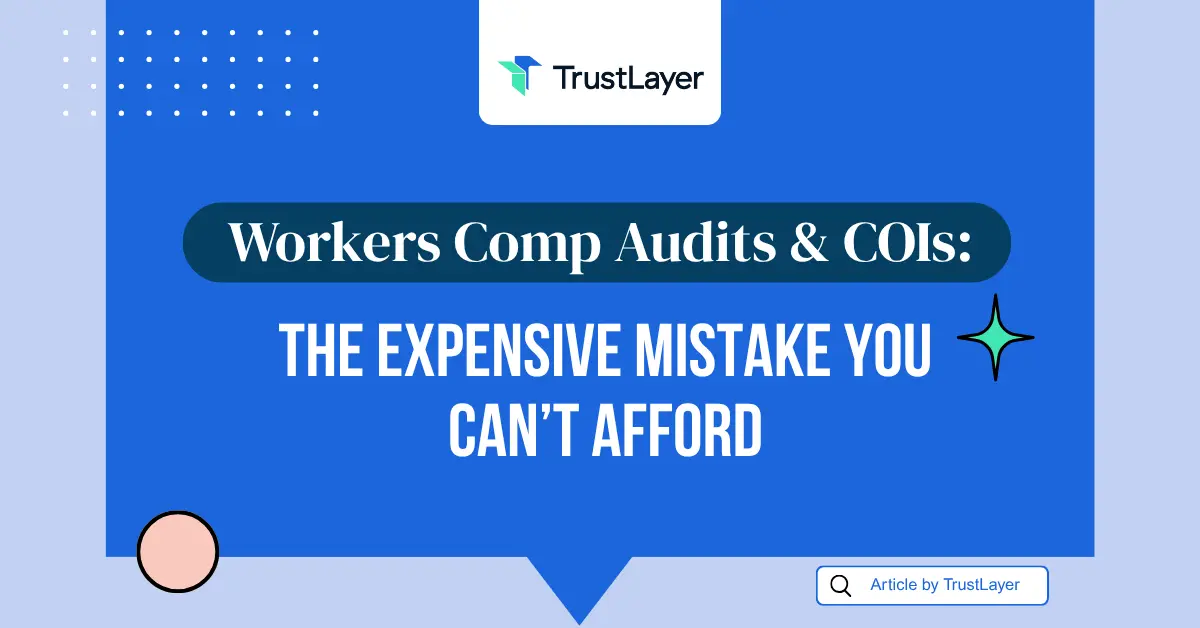
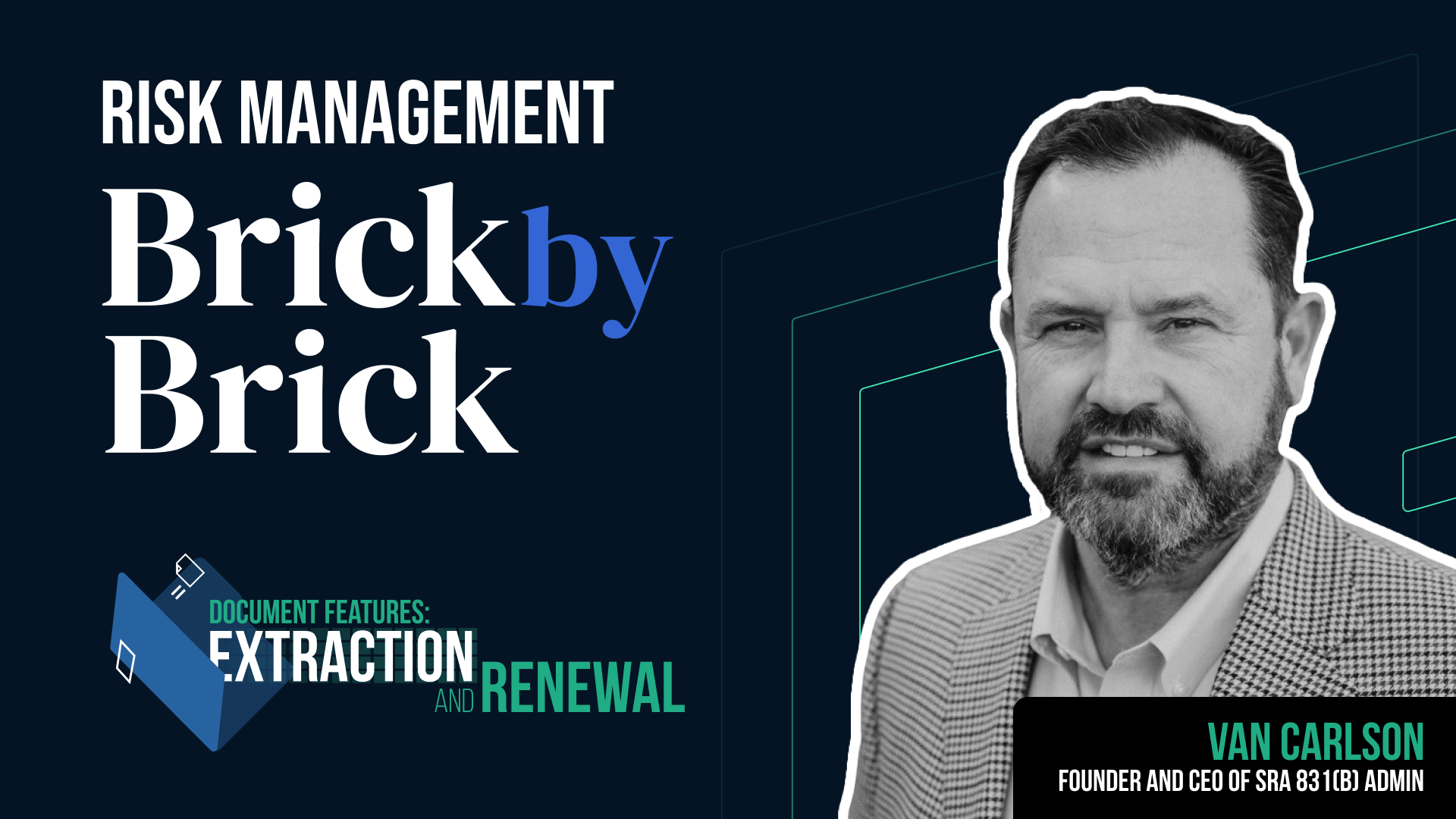
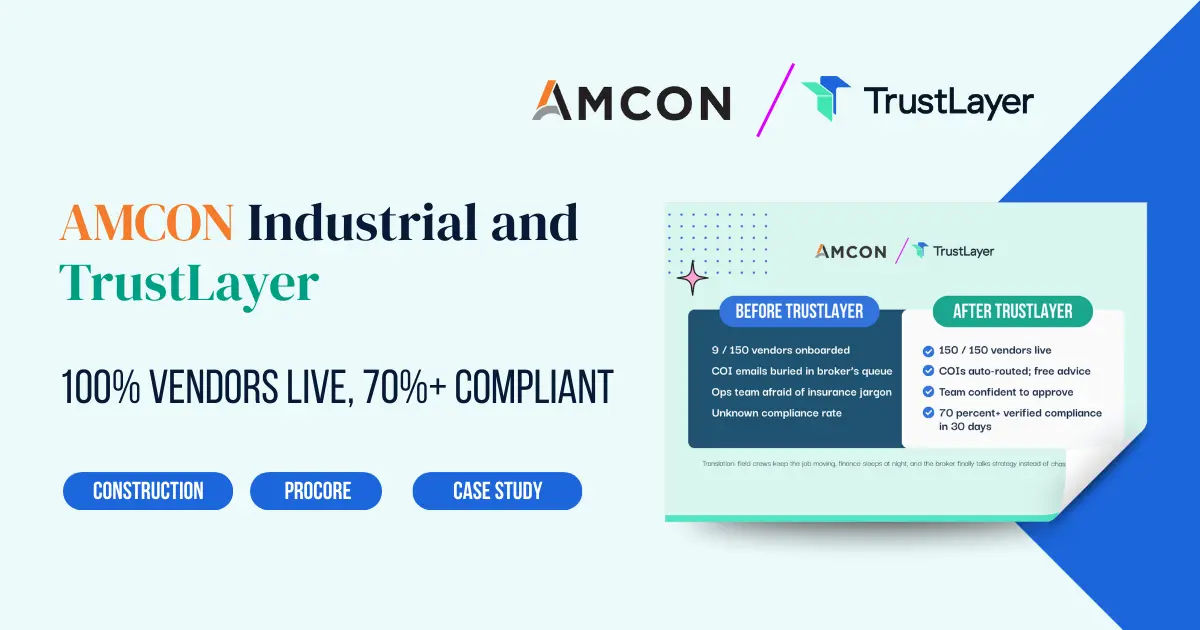



.png)
